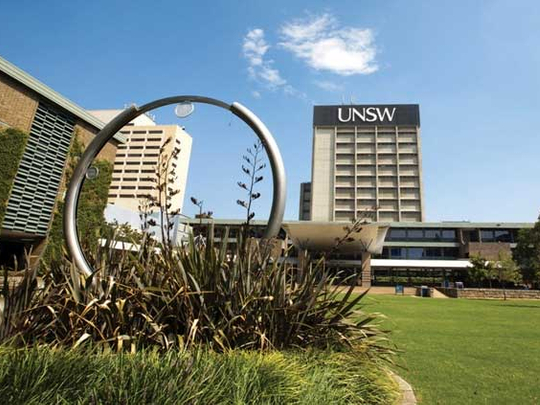
Imagine that you are a university student who has experienced sexual assault; now imagine being told that you’ll have to wait weeks to talk to a counsellor. Last week, End Rape on Campus (Eroc) Australia was contacted by a young woman from UNSW (University of New South Wales), who was sexually assaulted by a fellow student around a month ago. She has still not been able to receive trauma counselling.
“After the incident, I had no idea where to go or whom to contact ... As it was the weekend, I was unable to contact anyone at UNSW, so I tried the 1800Respect hotline. It was directed to a Queensland office and they didn’t know what to do with me, so I hung up. I tried phoning Royal Prince Alfred hospital, but they said all services were in person, not over the phone, so I had to go in there to be tested and receive a medical certificate. “It has [now] been over three weeks since my assault and I am yet to receive counselling from a trained professional who can deal with sexual assault cases.” Long waiting times for counselling are typical at universities around Australia. Counselling services are stretched so thin that there are simply not enough sessions to go around. Almost uniformly around the country, they are understaffed, underfunded, and not adequately promoted to students. And while the International Association of Counselling Services recommends one counsellor for every 1,000-1,500 students, Australian universities have, on an average, only one counsellor to every 4,340 students.
Some students are turned away and refused help altogether on the basis that they are no longer enrolled, having dropped out of their degree due to trauma. What’s worse, many counsellors do not have trauma-specialist training, and cannot meet the needs of sexual assault survivors. University websites often advertise that counsellors can help with problems such as “stress”, “time-management” and “adjusting to university life”. But while these services may be suitable for everyday student problems, referring a sexual assault survivor to a generalist service is like turning up to your general physician for open heart surgery.
At Eroc Australia, we work with students who have experienced sexual assault, helping them to access services and report their experiences. The situation has become so dire that last week, Eroc Australia has called on all 39 vice-chancellors to take urgent action. This includes more training for counsellors, as well as student representatives, staff and others who commonly receive disclosures of sexual assault.
We have also called for a national 1800 hotline to fill the large gaps left by inadequate university-based counselling services. A 24/7 hotline, run by the nationally-recognised expert Rape and Domestic Violence Services Australia, would provide specialist counselling to survivors of sexual assault within university communities. This support can often mean the difference between completing a degree and dropping out of study altogether.
Telephone-based counselling services are often more appealing to survivors, since they offer anonymity and can be accessed from the privacy of a survivor’s home, and at any time of the day. This is especially important for survivors who don’t feel safe visiting their campus. So far, more than 2,000 people have signed a petition supporting the call for this service. However, we still have had no response from Universities Australia.
Last year, when the Australian Human Rights Commission released its survey into sexual assault at universities, Eroc Australia and women’s officers around the country received an immediate spike in disclosures. We know that the final report, to be released in August, is likely to have an even greater impact, particularly considering the media coverage that will follow. But with only six weeks to go, time is running out to put in place the support that students urgently need.
Speaking to news.com.au, Dr Michael Salter, a senior lecturer in criminology at Western Sydney University, notes that “When that background community of care is absent, which is the case at the moment, then universities are defaulting to this very legalistic, bureaucratic view. A bureaucratic response is the exact opposite of what a person in that position needs. A feeling of institutional betrayal significantly increases the likelihood that a student will develop long-term traumatic mental health issues.”
So far, Universities Australia has not allocated any additional funding to the frontline services that have been expected to respond to the fallout caused by this research. This is a critical time for universities to step up and ensure that all individuals who are impacted by sexual assault within university communities have access to quality, evidence-based and trauma-specialist support. This is no more and no less than they deserve.
— Guardian News & Media Ltd
Anna Hush is a board member of Rape and Domestic Violence Services Australia. Nina Funnell is an ambassador for the Full Stop Foundation, which is part of Rape and Domestic Violence Services Australia.










